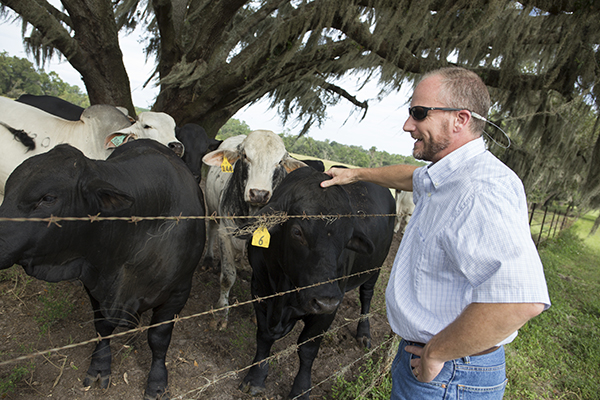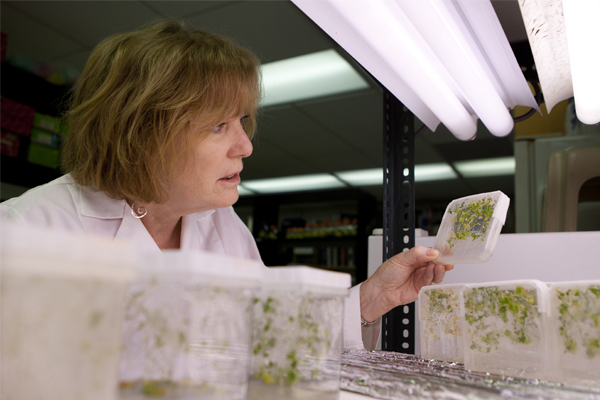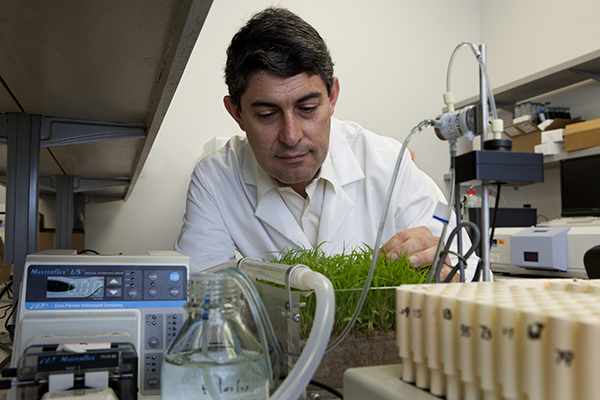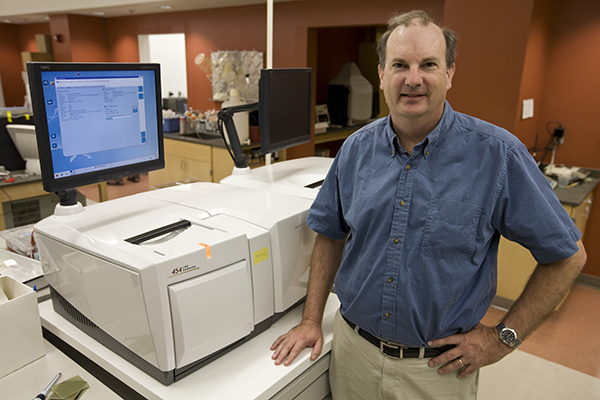Four UF/IFAS faculty members have been named 2020 Fellows of the American Association for the Advancement of Science (AAAS). This surpasses the record set last year when three UF/IFAS faculty members became fellows in a single year. Election as a AAAS Fellow is an honor bestowed upon AAAS members by their peers.
“Each of these scientists is outstanding in his or her own right, but to add them to a roster of an additional 19 AAAS fellows from UF/IFAS signals a breadth of excellence in the work of improving the human condition,” said Scott Angle, UF vice president for agriculture and natural resources and administrative head of UF’s Institute of Food and Agricultural Sciences. “As public scientists, they are driven to put science in the service of society. This recognition validates such service.”
Here are this year’s AAAS fellows from UF/IFAS:

Geoffrey Dahl arrived at the University of Florida in 2006 as the chair of the animal sciences department, a role he held until 2018. As a professor in the department, he maintains research and Extension programs focused on how environmental conditions such as photoperiod (light exposure) and ambient temperature affect dairy cattle health and productivity. Dahl has devoted his career to applied and basic research that has helped dairy farmers optimize animal performance and enhanced scientific understanding of animal reproduction. These discoveries have applications in sheep, goats, pigs and other agriculturally important species.

Rosemary Loria arrived at UF in 2011 as the chair of the plant pathology department. Loria’s career has been characterized by a fascination with what makes plants sick and how they fight back. She has made distinguished contributions to the study of the molecular basis of bacterial diseases of plants, particularly regarding genetics and biochemistry of Streptomyces bacteria, which cause an economically important disease in potatoes known as “scab.” Loria’s work not only identified the genes that confer pathogenicity (the ability to cause disease), but also showed that a phenomenon called horizontal gene transfer spread pathogenicity genes among Streptomyces species.

Rafael Muñoz-Carpena arrived at UF in 2001 as an assistant professor in the department of agricultural and biological engineering based at the UF/IFAS Tropical Research and Education Center. Now a professor in the same department on the main UF campus, Muñoz-Carpena study’s one of Florida’s most important natural resources: water. He takes a holistic approach to hydrology, researching not just how water moves through the environment but also interacts with local ecosystems and people. Muñoz-Carpena develops computer models that account for these multiple factors and can inform management scenarios and best practices.

Eric Triplett arrived at the University of Florida in 2003, where he assumed the role of chair of the microbiology and cell science department, a position he still holds today. His research has covered a range of topics, from autoimmune diseases, premature birth, citrus greening and antimicrobial resistance in agriculture. As department chair, Triplett has worked to increased student diversity and enrollment of underrepresented groups, and the microbiology and cell science major has become one of the most popular among undergraduates at UF. In August of this year, the American Society for Microbiology (ASM) recognized Triplett with the William A. Hinton Award for Advancement of a Diverse Community of Microbiologists.
This year 489 members have been awarded this honor by AAAS because of their scientifically or socially distinguished efforts to advance science or its applications.
This year’s AAAS Fellows will be formally announced in the AAAS News & Notes section of the journal Science on November 27, 2020. A virtual Fellows Forum – an induction ceremony for the new Fellows – will be held on February 13, 2021.
The tradition of AAAS Fellows began in 1874. Currently, members can be considered for the rank of Fellow if nominated by the steering groups of the association’s 24 sections, or by any three Fellows who are current AAAS members (so long as two of the three sponsors are not affiliated with the nominee’s institution), or by the AAAS chief executive officer. Fellows must have been continuous members of AAAS for four years by the end of the calendar year in which they are elected. The AAAS Fellow honor comes with an expectation that recipients maintain the highest standards of professional ethics and scientific integrity.
Each steering group reviews the nominations of individuals within its respective section and a final list is forwarded to the AAAS Council, which votes on the aggregate list.
The Council is the policymaking body of the Association, chaired by the AAAS president, and consisting of the members of the board of directors, the retiring section chairs, delegates from each electorate and each regional division, and two delegates from the National Association of Academies of Science.
AAAS encourages its sections and Council to consider diversity among those nominated and selected as Fellows, in keeping with the association’s commitment to diversity, equity and inclusion.
 0
0
